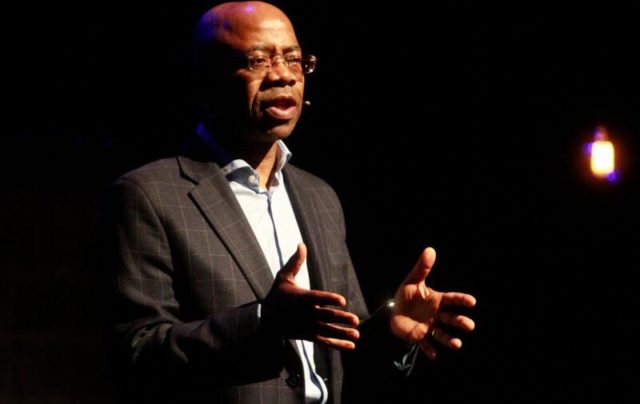University of the Free State Chancellor and president of Business Unity South Africa Bonang Mohale says South Africa is not a poor country, it is just a poorly managed country.
UNIVERSITY of the Free State (UFS) Chancellor and president of Business Unity South Africa Bonang Mohale says South Africa is not a poor country, it is just a poorly managed country.
Mohale on Tuesday led a dialogue which was hosted by the Inclusive Society Institute (ISI).
A panel, which comprised international and national experts, engaged on President Cyril Ramaphosa’s proposed establishment of a National Anti-Corruption Council (NACC) for the country.
The ISI and the Anti-Corruption Centre for Education and Research (ACCERUS), of Stellenbosch, through its School of Public Leadership, partnered to research the realities of international and African Advisory Councils against corruption, and to produce a report which will be handed to the public policymakers, as a contribution to policy development.
The report seeks to make recommendations on the desirability of the NACC.
Mohale said that 27 years into democracy, and even three-and-a-half years into the country’s sixth administration, it is clear that state capture is still continuing, despite the efforts of the president.
In a country with 60.1 million people and on average collecting R1.4 trillion through Sars, Mohale said there is “absolutely no reason” why people should go to bed hungry, because there is more than enough money to go around.
Mohale said South Africa is not a poor country, but it is just a poorly managed country.
“We all begin to die the day that we are silent about the things that matter,” said Mohale.
Lead researcher of the ISI Professor Evangelis Mantzaris, who is also involved in compiling the report, said no single body can defeat corruption.
“Political will and the right personnel will allow us to move forward. The most fundamental attitude is to actually upgrade what exists in the anti-corruption agencies,” he said.
Mantzaris said no one can fight against corruption without the strong support of the society, communities, the government, and all its institutions.
He added that the report will be “very comprehensive” and provide 10 recommendations.
– Political Bureau








